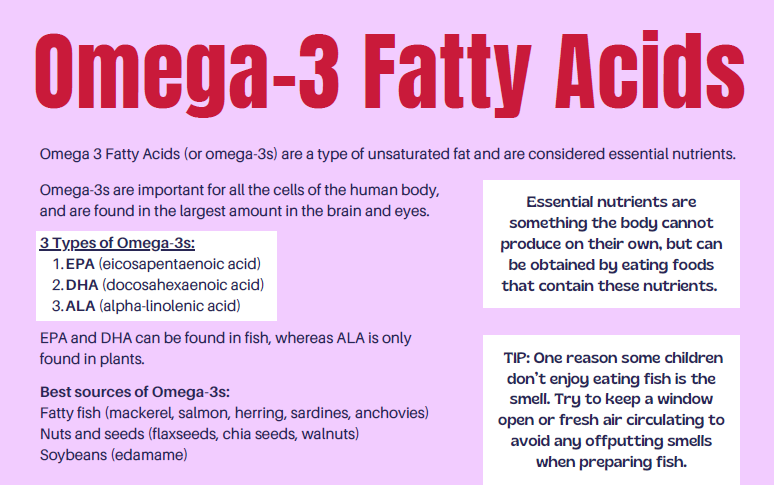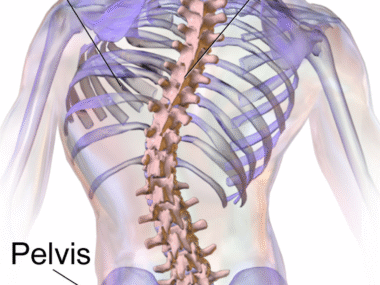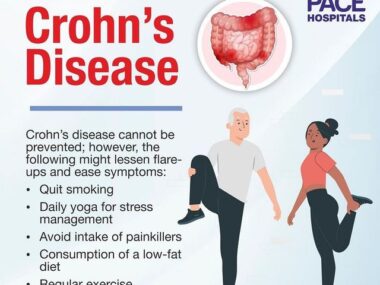Omega-3 Fatty Acids & the Important Role They Play
What is Omega-3?
Omega-3 fatty acids are a type of polyunsaturated fat that plays a crucial role in supporting overall health and well-being. These essential nutrients cannot be produced by the body, so it is important to obtain them through our diet or supplements. Omega-3 fatty acids consist of three main types: alpha-linolenic acid (ALA), eicosapentaenoic acid (EPA), and docosahexaenoic acid (DHA). Each type offers unique benefits to various aspects of our health.
The Importance of Omega-3 for Overall Health
Omega-3 fatty acids are often praised for their remarkable ability to support overall health. Numerous studies have shown that incorporating Omega-3 into your diet can have a positive impact on various bodily functions. From reducing inflammation to supporting cardiovascular health, Omega-3 is truly a powerhouse of nutrients. Let’s explore some of the key benefits in detail.
Sources of Omega-3 Fatty Acids
When it comes to obtaining Omega-3 fatty acids, there are various sources to choose from. Fatty fish like salmon, mackerel, and sardines are among the richest sources of EPA and DHA. These fish accumulate Omega-3 fatty acids by consuming algae and other marine organisms. For those following a plant-based diet, sources of ALA include flaxseeds, chia seeds, walnuts, and hemp seeds. While ALA is beneficial, it is important to note that the conversion of ALA to EPA and DHA in the body is limited. Therefore, it may be necessary to consider Omega-3 supplements for optimal intake.
Omega-3 Benefits for Heart Health
One of the most well-documented benefits of Omega-3 is its positive impact on heart health. Research has shown that Omega-3 fatty acids can help reduce the risk of heart disease by lowering triglyceride levels, reducing blood pressure, and preventing the formation of blood clots. These fatty acids also have anti-inflammatory properties that can help protect the heart and blood vessels from damage. By including Omega-3-rich foods or supplements in your diet, you can give your heart the support it needs to stay healthy.
Omega-3 Benefits for Brain Health
The brain is composed mostly of fat, and Omega-3 fatty acids play a crucial role in its optimal functioning. DHA, in particular, is a major component of brain cell membranes. Studies have shown that Omega-3 fatty acids can improve cognitive function, enhance memory, and reduce the risk of age-related cognitive decline. Omega-3 may also play a role in reducing the symptoms of depression and anxiety. By nourishing your brain with Omega-3, you can support its health and unlock your full cognitive potential.
Omega-3 Benefits for Joint Health
Joint pain and inflammation can significantly impact one’s quality of life. Fortunately, Omega-3 fatty acids have been found to have anti-inflammatory properties that can help alleviate joint pain and stiffness. EPA and DHA can reduce the production of inflammatory compounds in the body, providing relief for conditions such as rheumatoid arthritis and osteoarthritis. By incorporating Omega-3 into your diet, you can support joint health and enjoy greater mobility and flexibility.
Omega-3 Supplements: Types and Dosage Recommendations
While obtaining Omega-3 from food sources is ideal, supplements can be a convenient option for those who struggle to meet their daily requirements. Omega-3 supplements are available in various forms, including fish oil capsules, algae oil capsules (suitable for vegans), and krill oil capsules. The dosage of Omega-3 supplements will vary depending on the individual’s age, health condition, and specific needs. It is always recommended to consult with a healthcare professional to determine the right dosage for you.
Omega-3 in Different Foods: Fish, Nuts, Seeds, and Oils
Incorporating Omega-3-rich foods into your diet is an excellent way to boost your intake of these essential fatty acids. Fatty fish, such as salmon, trout, and mackerel, are not only delicious but also provide a generous amount of EPA and DHA. For vegetarians and vegans, flaxseeds, chia seeds, walnuts, and hemp seeds are great sources of ALA. Additionally, certain cooking oils, like flaxseed oil and canola oil, also contain Omega-3. By diversifying your food choices, you can ensure a well-rounded intake of Omega-3 fatty acids.
Omega-3 and Its Role in Reducing Inflammation
Chronic inflammation is linked to a variety of health conditions, including heart disease, diabetes, and autoimmune disorders. Omega-3 fatty acids have been shown to have powerful anti-inflammatory effects, helping to reduce the production of pro-inflammatory molecules in the body. By including Omega-3 in your diet, you can help combat chronic inflammation and promote a healthier internal environment.
BENEFITS OF OMEGA-3

Image Source: FreeImages
Understanding the Importance of Omega-3 for the Body
Omega-3 fatty acids are a group of essential nutrients that the body needs but cannot produce on its own. These fats are crucial for maintaining optimal health and well-being. They play a vital role in various bodily functions, including brain function, heart health, reducing inflammation, and promoting better joint mobility.
The body requires three main types of omega-3s: alpha-linolenic acid (ALA), eicosapentaenoic acid (EPA), and docosahexaenoic acid (DHA). While ALA can be obtained from plant-based sources, EPA and DHA are primarily found in fatty fish.
Health Benefits of Omega-3
Omega-3 and Heart Health
One of the most well-known benefits of omega-3 fatty acids is their positive impact on heart health. Studies have shown that omega-3s can help lower blood pressure, reduce triglyceride levels, and decrease the risk of heart disease and stroke. These essential fats have anti-inflammatory properties that can help prevent the buildup of plaque in the arteries, promoting better cardiovascular function.
Omega-3 and Brain Function
Omega-3s are essential for brain development and function. DHA, in particular, is a major structural component of the brain and plays a crucial role in cognitive function. Research suggests that omega-3s can improve memory, attention, and overall cognitive performance. They may also help reduce the risk of age-related cognitive decline and neurodegenerative diseases such as Alzheimer’s.
Omega-3 and Joint Health
Inflammation is a common cause of joint pain and stiffness. Omega-3 fatty acids have powerful anti-inflammatory properties that can help reduce joint inflammation and alleviate symptoms of conditions like arthritis. Studies have shown that regularly consuming omega-3s can improve joint mobility, decrease joint tenderness, and enhance overall joint health.
Omega-3 and Mental Health
The benefits of omega-3s extend beyond physical health and into the realm of mental well-being. Research has suggested a link between omega-3 intake and a reduced risk of mental health disorders such as depression and anxiety. These essential fats play a crucial role in maintaining optimal brain function and neurotransmitter balance, which can positively impact mood and emotional well-being.
Food Sources of Omega-3
While omega-3 fatty acids can be obtained through supplements, it’s always best to incorporate them into your diet through natural food sources. Fatty fish like salmon, mackerel, and sardines are excellent sources of EPA and DHA. Plant-based sources of omega-3s include flaxseeds, chia seeds, walnuts, and hemp seeds, which contain ALA.
How to Incorporate Omega-3 into Your Diet
Incorporating omega-3s into your daily diet doesn’t have to be complicated. Here are a few simple ways you can ensure you’re getting enough of these essential fats:
- Eat fatty fish at least twice a week. Grilled salmon or tuna can make for delicious and nutritious meals.
- Add ground flaxseeds or chia seeds to your breakfast cereal, smoothies, or yogurt.
- Snack on walnuts or almonds for a healthy dose of omega-3s.
- Use flaxseed oil or extra-virgin olive oil in your salad dressings or as a finishing touch to cooked meals.
By making these small adjustments to your eating habits, you can easily incorporate the benefits of omega-3s into your daily routine.
Conclusion and Final Thoughts
Omega-3 fatty acids are truly the superstars of nutrients, offering a wide range of benefits for the body and mind. From supporting heart health and brain function to reducing inflammation and promoting better joint mobility, omega-3s are essential for overall well-being.
Incorporating omega-3s into your diet doesn’t have to be complicated or expensive. By including fatty fish, plant-based sources, and healthy oils in your meals, you can ensure you’re getting the necessary amount of these vital nutrients.
Whether you’re looking to optimize your heart health, enhance cognitive function, or simply improve your overall well-being, omega-3s are a game-changer. Unlock the potential of omega-3 fatty acids and embark on a journey towards a healthier, happier you.











